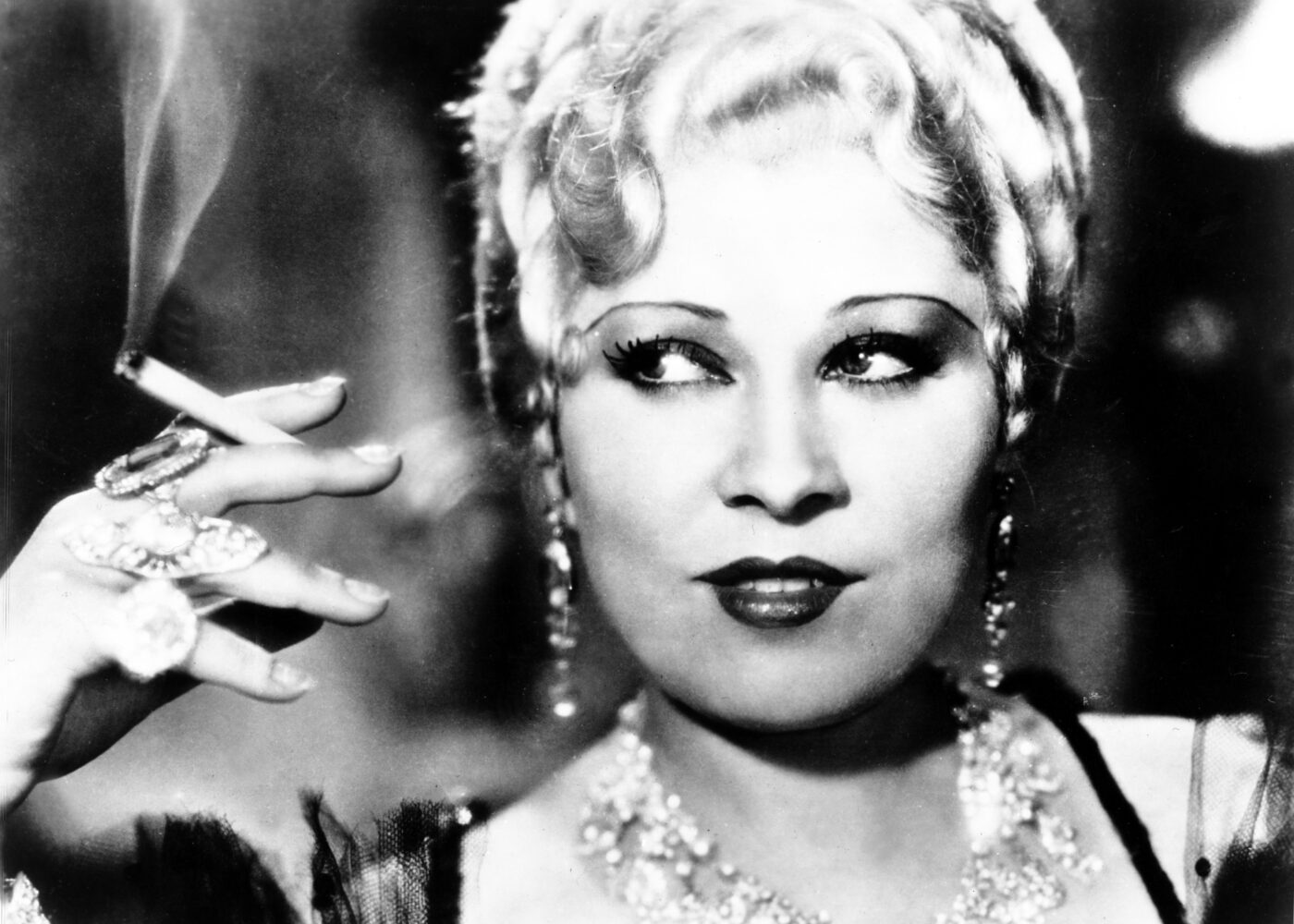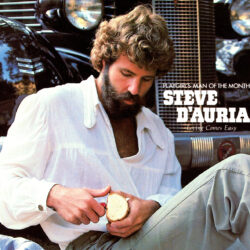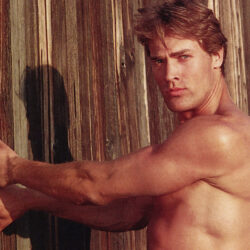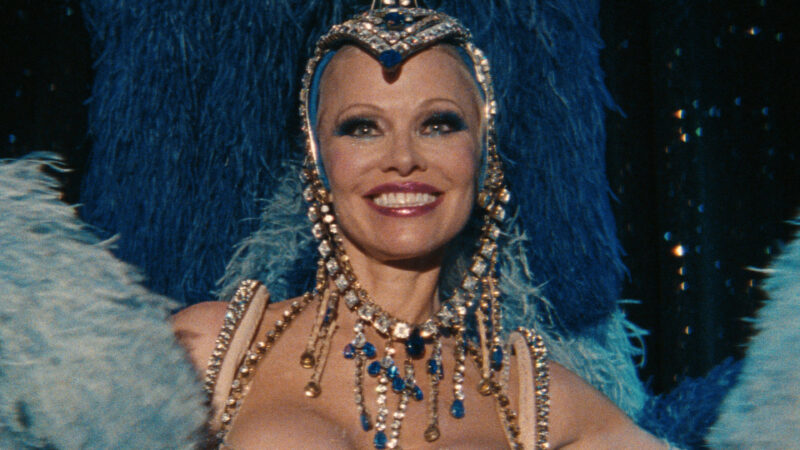One was a Broadway star and a Hollywood legend; the other was a charismatic porn actress. Both were sex symbols ahead of their time, both challenged the mores of society (respectively American and Italian), both lived revolutionary lives, as free women. Two new books –and a movie premiered at the 81st Venice Film Festival– brought these trailblazers back into the public eye: Francesca Pellas explores Moana Pozzi’s life in Tutto deve brillare. Vita e sogni di Moana Pozzi; Michael Gregg Michaud documents Mae West’s controversial –but highly successful– nightclub act in Mae West and Her Adonises.
“Few women had such an influence on Italian society,” Pellas’ book cover claims. “She made sexuality and desire, for centuries considered taboo, themes of public discourse (…) She used her body and mind to ignite a personal revolution that became collective.” Two of the ten chapters best encapsulate Pozzi’s pursuit of freedom: “Live as you please” (chapter 2) and “Routine is the real perversion” (chapter 7). Pellas writes: “To the feminists (…) who reproached her for being objectified, for giving away her body, she retorted ‘The real woman object is the housewife who washes, sews, irons and cooks for the family’ (…) And she was right. Women’s bodies have always been enslaved by their husbands, the house, the children and the ironing board. Breaking the rules also meant taking back one’s own body and putting it at the service of one’s fight for freedom.”

Tutto deve brillare.
Long before the Chippendales. Before Playgirl magazine and Madonna and Magic Mike, Mae West’s revues in the mid 50s and their bevy of scantily clad bodybuilders (first in Vegas at the Sahara Hotel, then in Reno and all over the country) broke old stereotypes, new grounds and all box-office records. “Her objectification of men –nearly stripped bare from head to toe and paraded around the stage for an audience– was the complete opposite of what had been seen and celebrated before,” comments Michael Gregg Michaud. “Her shameless exploitation of the male body not only titillated the females in the audience, it forever changed the way men were physically objectified in the public eye.”
West brought about equity in showbiz –and equal representation of women’s desires. “I certainly have chosen a magnificent array of masculinity for my first appearance in night clubs (…) Men come to see me, and women come to see the musclemen,” she boasted. “It’s something new in the way of acts (…) I’m presenting the first bare chest act for lady customers in history. I know what to give the women. A woman likes to look at any male body (…) All sizes and shapes. Luckily all women don’t like the same man!” West was already 62 at the time: once more she turned the tables, ‘feeling’ Dick Dubois’ muscles (Mister America 1954) and Mickey Hargitay’s (Mister Universe 1955) and groaning: “This man’s got a great voice.” She had done it before, she’d do it again (at 87), boldly, courageously defying the prejudices (the taboo?) against older women and their sexuality in Sextette.
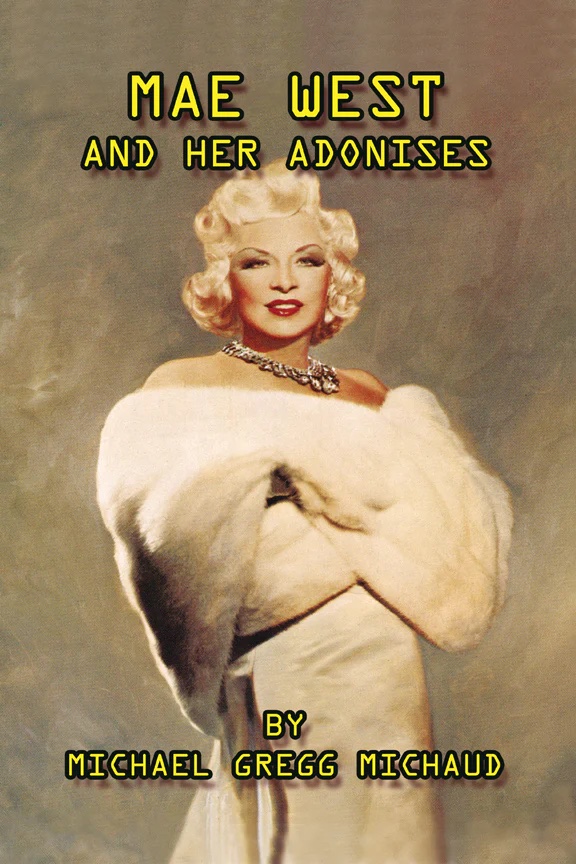
Mae West and Her Adonises.

